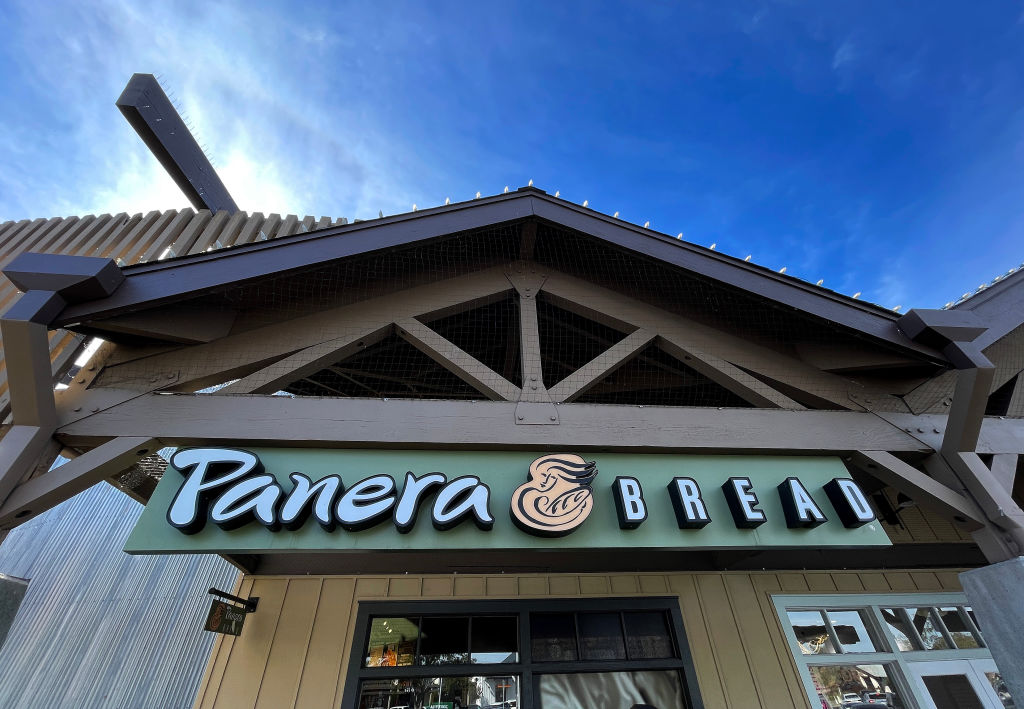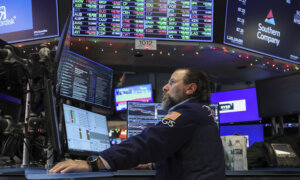News Analysis
With California’s new fast-food restaurant regulations set to take effect April 1, questions abound about what establishments are exempt from the new law.
Whether Panera Bread is exempt became a point of controversy last week after it was revealed that the restaurant’s billionaire franchisee Greg Flynn donated $226,800 to California Gov. Gavin Newsom’s campaign since 2018, with some suggesting the money potentially helped carve out an exemption for the brand in the new law.
There are 188 Panera Bread locations in California out of 2,183 in the nation, according to the company’s website.
Mr. Flynn controls 24 of the sites in the Golden State. The Flynn Restaurants group is the second largest Panera franchisee in the world with more than 125 restaurants across eight states, according to the firm’s website.
At issue are grey areas in the language of Assembly Bill 1228—authored by Assemblyman Chris Holden, a Pasadena Democrat, and signed into law last year—which sets a minimum wage of at least $20 per hour for employees of national fast-food chains operating in the state.
The bill defines such operations as those restaurants that offer limited table service and consist of more than 60 locations across the country that share common brands or are identified by “standardized options for decor, marketing, packaging, products, and services.”
While not introduced in the original language of the proposal, an amendment passed in September 2023 shortly before the bill passed the Legislature makes exceptions for certain establishments.
According to the text of the law, the definition of “fast food restaurant shall not include an establishment that on September 15, 2023, operates a bakery that produces for sale on the establishment’s premises bread ... so long as it continues to operate such a bakery.”
The amendment specifies that “this exemption applies only where the establishment produces for sale bread as a stand-alone menu item and does not apply if the bread is available for sale solely as part of another menu item.”
Panera Would Be Forced to Raise Wages Regardless: Newsom’s Donor
Some interpreted the law to include Panera Bread—a chain that sells and bakes bread on-site and offers both bread and meals on its menu.
Mr. Flynn told The Epoch Times that he never lobbied for the exemption and “was surprised” when he read the updated language in the bill. Implying that Panera Bread was exempt, he said to remain competitive in the labor market, the company would be forced to raise wages regardless.
“Such a narrow exemption has very little practical value,” he said. “As it applies to all of our peer restaurants in the fast-casual segment, we will almost certainly have to offer market-value wages in order to attract and retain employees.
Critics argued the governor was potentially involved in a pay-to-play scheme that resulted in the exclusion.
“For Pete’s sake, stop making exemptions just for the people who have the connections and the ability to pay, because that’s what this is,” state Sen. Kelly Seyarto, a Murrieta Republican, argued on the Senate floor Feb. 29. “And, that’s bad legislation. And, we should be ashamed of ourselves for passing stuff like this.”
Panera Not Exempt: Newsom
Mr. Newsom’s office, however, pushed back on the idea and told The Epoch Times the governor never met with Mr. Flynn about the bill, the idea “was absurd,” and the company is not exempt from the law.
“Our legal team has reviewed, and it appears Panera is not exempt from the law,” Alex Stack, spokesperson for the governor, told The Epoch Times by email Feb. 29. “To be exempt under the bakery exemption, the ‘establishment’ must operate a bakery that ‘produces’ bread ‘for sale on the establishment’s premises.’

California Gov. Gavin Newsom signs the fast food bill surrounded by fast food workers at the SEIU Local 721 in Los Angeles, on Sept. 28, 2023. (Courtesy of Office of Governor Gavin Newsom)
The governor’s legal team concluded that because the restaurants do not make bread from scratch but instead have dough pre-mixed and delivered, they are disqualified from the exemption.
“This distinction is relevant because we understand many chain bakeries—such as Panera Bread—mix dough at centralized off-site locations and then ship that dough to their retail locations for baking and sale,” Mr. Stack said.
Who Is Exempt?
Staff members from multiple Panera Bread locations confirmed to The Epoch Times March 4 that dough is brought in for baking on-site.
Another bakery chain, Paris Baguette, could also fail to qualify for the bakery exemption based on the same legal interpretation, as staff informed The Epoch Times that dough is mixed before being sent to the company for baking.
Other restaurants including Subway and the Corner Bakery Cafe fail to meet the requirement that bread is sold as a stand-alone item.
Based on the law’s definitions and the interpretation offered by the governor’s legal team, the only restaurant that could qualify for the bakery exemption is the Great Harvest Bread Company—only four locations exist in California out of more than 200 nationwide. Staff confirmed to The Epoch Times that all bread is made from scratch by employees onsite each morning.
Questioning the rationale of such an exemption that still has grey areas and only appears to affect a handful of restaurants across the state, one lawmaker said further investigation is needed to uncover what establishments are exempt and how the amendment came to be.
“California restaurants are getting ready to be crushed by this minimum wage hike, but Newsom’s donor is going to come out doing just fine,” Assemblyman Joe Patterson told The Epoch Times by email March 1. “We need an independent look at these allegations to restore Californian’s faith in their government.”














